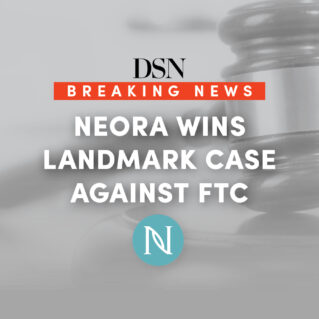For young Americans in the dating scene, a new epidemic has emerged—digital dating abuse. Mary Kay Inc. recently released data from its eighth annual Truth About Abuse Survey which reveals that more than 1 in 4 (27%) of young Americans report they have personally experienced digital dating abuse and another 39 percent know someone who has. While the problem is widespread, it is also underreported, increasing the need for intervention and education.
“As a corporate leader in the fight against domestic violence, we know how important it is to educate and empower young people about warning signs before they happen,” said Kirsten Gappelberg, Director of Corporate Social Responsibility and Sustainability for Mary Kay Inc. “Through this year’s Truth About Abuse Survey, we’ve learned that young people have difficulty recognizing digital dating abuse. This tells us there’s an opportunity to raise awareness while helping to educate young people as they navigate the complex combination of today’s dating scene and the ever-changing world of technology.”
According to the survey, warning signs of digital dating abuse young people have experienced include:
- Significant other going through their phone (46%)
- Texting, calling or emailing excessively to “check-in” (33%)
- A partner sending unwanted, lewd texts or emails (18%)
- Posting embarrassing or negative content about a significant other on social media (14%)
The survey also revealed surprising results about the widespread epidemic:
- Gender Gap: Young women are at an even greater risk for abuse with 30 percent of girls compared to 24 percent of boys reporting that they have personally experienced digital dating abuse.
- Social Media Danger: 75 percent of young people believe social media has become more of a tool for abusers than a resource for victims.
- More Education Needed: 82 percent of young people said they need more information to talk to friends about digital dating abuse.
“It is disheartening to see abusive partners leverage technologies that are intended to mobilize our lives and bring us closer to our loved ones as a tool for controlling their partners,” said Cameka Crawford, Chief Communications Officer at loveisrespect. “As technology changes every day, our strategies to prevent and to end abuse must change and adapt as well. The results from Mary Kay’s survey further illustrate the need for more education, ensuring young adults and teens are building healthy relationships in all contexts and across all landscapes, including the digital world.”
The 2017 survey is part of Mary Kay’s Don’t Look Away campaign, which works to educate the public on recognizing the signs of an abusive relationship, how to take action and to raise awareness for support services. In partnership with Wakefield Research, 1,000 young people ages 13–24 nationwide participated in the survey as a representation of America’s young population. To date, Mary Kay Inc. and The Mary Kay Foundation℠ have given $57 million to domestic violence prevention and awareness programs in an effort to end the cycle of abuse.



